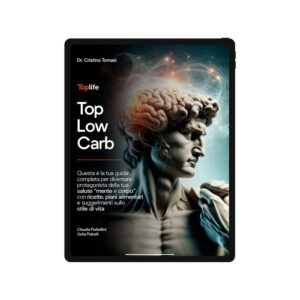
Il testosterone (T) nella donna è fautore di potenza fisica e mentale: ci rende assertive, sicure di noi stesse, veloci nei processi decisionali.
Fondamentale per la salute della donna, per il suo cervello affinché non soccomba ai segni del tempo, per la sua vitalità e sessualità.
Nella donna il testosterone raggiunge il picco a 18-20 anni: ecco perché il desiderio è al massimo. Già a quarant’anni si è ridotto già del 50%: ciò spiega il calo della libido.
Se una donna ha subito l’asportazione delle ovaie il livello di testosterone scende dell’80%
Le ovaie ne producono la metà e il resto proviene dalle ghiandole surrenali dove viene prodotto nella zona reticolare insieme agli altri androgeni (DHEA e androstenedione).
Il testosterone ha molte funzioni, alcune delle quali includono influenzare le varie fasi della pubertà e la sfera sessuale.
Anche altre funzioni sono interessate, come la densità ossea, la massa muscolare, l’umore e le riserve di energia.
Verso i 35-40 anni può verificarsi una sindrome da deficit di androgeni e la donna si sente insicura, ansiosa, esitante, possono esserci reazioni isteriche, perde il controllo velocemente, non ha desiderio sessuale, non ha l’orgasmo. Inoltre se il testosterone è basso, la donna può essere molto depressa. L’aspetto è pallido, lassità muscolare e tissutale (occhio alle varici!), sarcopenia, accentuazione della cifosi, nella vulva si verifica un’atrofia delle grandi labbra.
La muscolatura scheletrica correla in modo significativo con il T. Il T aumenta la massa magra nella donna, riducendo il grasso addominale, gluteale e totale portando ad una riduzione del peso nella donna postmenopausale.
EFFETTI DEL Testosterone
Effetti sul sistema cardiovascolare
Livelli adeguati di testosterone riducono l’ispessimento intimale delle arterie.
In donne post-menopausali livelli bassi di T incrementano il rischio di CIC.
Ossa
Il T è un potente stimolatore di massa ossea a livello del collo del femore e della colonna lombare.
Malattie reumatiche
Il T riduce il dolore in donne post-menopausali con AR
Dismenorrea e menorragia + fibromi
Il T migliora i dolori mestruali e riduce l’abbondanza del flusso in caso di menorragia, agendo come il progesterone.
Inoltre stabilizza i fibromi uterini o ne riduce le dimensioni.
Lichen sclerosus della vulva
Riduce notevolmente i sintomi anche se dal punto di vista istologico non vi sono significativi cambiamenti.
Particolari sintomi di lichen sono rapporti dolorosi, defecazione dolorosa, intenso prurito vulvare co escoriazioni della vulva, perdita della struttura vulvare fino alla fusione delle labbra e copertura della clitoride.
Incontinenza urinaria
Il T è indubbiamente il miglior trattamento per l’incontinenza urinaria, specie da stress. Ottimo spalmarlo all’entrata dell’uretra 2 x al giorno facendo almeno 10 esercizi di contrazione.
Vampate
Ottimo effetto nel ridurle. Il T viene convertito in estradiolo.
Umore
Miglioramento dell’umore, maggiore energia e vitalità. Azione sinergica con estradiolo
Libido
Il T raddoppia in numero di orgasmi rispetto al solo estradiolo. In menopausa la donna deve essere sostituita anche di T.
Longevità
Il T ha un effetto positivo sulla lunghezza della vita.
Come diagnosticare un deficit androgenico nella donna?
| Ormone | valori ottimali |
| E2 | 70-160 pg/ml |
| T | 350 pg/ml |
| SHBG | 65 pmol/ml |
| DHEAS | 2800 pg/ml |
| (androstenedione) | 2,8 |
| DIT | 3 ng/ml |
Terapia del deficit androgenico nella donna
L’obiettivo è di trovare un equilibrio ed associate il T a E2, E3 e P.
Se si somministra T si devono SEMPRE associare estrogeni/progesterone.
La miglior forma di somministrazione è il gel liposomiale alla concentrazione dello 0,5% che corrisponde ad un dosaggio di 5 mg. È meglio in quanto evita il passaggio epatico (hepatic first pass), è più naturale e fisiologico, induce una minore soppressione della produzione indogena di T e LH.
Il dosaggio può variare da 5 a 10 mg/die.
Eventuale svantaggio: possibile maggiore conversione dopo 3-12 mesi a DIT (Diidrotestosterone) per la presenza nella pelle dell’enzima 5-alfa-reduttasi.
Terapia controindicata in donne con irsutismo.






